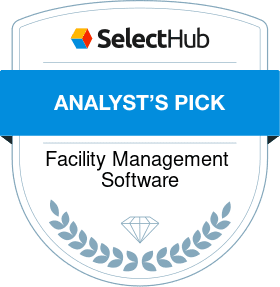Facility management is evolving at a rapid pace, with growing pressure on organizations to adopt sustainable and socially responsible practices. Environmental, Social, and Governance (ESG) considerations have become essential for businesses looking to stay competitive, attract investors, and meet regulatory demands. For facility managers, ESG software offers powerful tools to streamline compliance, monitor sustainability metrics, and drive operational excellence.
This article covers what facility managers should know about ESG software. It discusses its benefits, features, and best practices for using it. By the end, you’ll have a clear understanding of why ESG software is a game-changer in facility management.
What is ESG Software?
ESG software is a type of digital tool. It helps organizations measure, manage, and report their environmental, social, and governance performance. This software helps businesses track carbon emissions, water use, waste reduction, employee well-being, and supply chain ethics.
For facility managers, ESG software serves as a central place to collect and analyze data. This data relates to the sustainability and efficiency of their buildings. This information is critical for creating action plans that align with organizational goals and global sustainability standards.
Why is ESG Important for Facility Managers?
The role of facility managers has expanded far beyond routine maintenance and operations. Today, they are key players in driving an organization’s ESG initiatives. Here’s why ESG matters:
- Regulatory Compliance: Governments and industry bodies are introducing stricter sustainability regulations. ESG software helps ensure compliance by offering tools to monitor and report required metrics.
- Investor Expectations: Investors increasingly favor companies with strong ESG credentials. Facility managers can contribute by showcasing their buildings’ energy efficiency and sustainability efforts.
- Operational Cost Savings: Sustainable practices often lead to reduced energy and resource consumption, lowering operational costs.
Key Features of ESG Software
ESG software comes with a range of features tailored to help organizations achieve their sustainability goals. For facility managers, the most relevant capabilities include:
- Data Aggregation: Consolidates data from various systems such as HVAC, lighting, and water management.
- Real-Time Monitoring: Tracks energy consumption, emissions, and other metrics in real-time.
- Customizable Dashboards: Visualizes data to provide actionable insights.
- Reporting Tools: Generates reports for stakeholders and regulatory bodies.
- Predictive Analytics: Uses historical data to forecast trends and recommend improvements.
How ESG Software Simplifies Data Management
One of the biggest challenges in facility management is handling the sheer volume of data generated by building systems. ESG software simplifies this by:
- Automating Data Collection: Eliminating manual processes by integrating with IoT devices and building management systems.
- Standardizing Metrics: Ensuring data is presented in formats that comply with international ESG standards.
- Centralizing Information: Storing all ESG-related data in a single platform for easy access.
This streamlined approach not only saves time but also reduces the risk of errors and inaccuracies.
Choosing the Right ESG Software for Your Facility
Not all ESG software solutions are created equal. Facility managers should consider the following factors when selecting a platform:
- Scalability: Ensure the software can grow with your organization and handle additional data sources.
- Ease of Integration: Check if the software can integrate seamlessly with existing systems, such as Building Management Systems (BMS).
- User-Friendliness: Look for platforms with intuitive interfaces to encourage adoption among team members.
- Customizability: Choose software that can be tailored to your facility’s specific needs and ESG goals.
- Customer Support: Opt for providers that offer robust customer support and training resources.
Real-Life Applications of ESG Software in Facility Management
Facility managers can use ESG software in numerous ways to enhance their operations:
- Energy Management: Identify and address inefficiencies to reduce energy consumption and costs.
- Waste Reduction: Track waste output and implement recycling programs.
- Indoor Air Quality Monitoring: Ensure healthy indoor environments for occupants.
- Water Conservation: Monitor usage and detect leaks to minimize water waste.
- Sustainable Procurement: Evaluate the ESG performance of suppliers and vendors.
How ESG Software Supports Regulatory Compliance
Governments worldwide are mandating stricter reporting requirements for organizations. ESG software ensures compliance by:
- Providing Templates for Reports: Automatically formatting data according to regulatory standards.
- Offering Audit Trails: Keeping detailed records for inspections and audits.
- Updating Standards: Staying current with evolving regulations to help organizations remain compliant.
This proactive approach minimizes the risk of non-compliance penalties and reputational damage.
Common Challenges in Implementing ESG Software
While ESG software offers immense benefits, facility managers may face some challenges during implementation, such as:
- High Initial Costs: Some platforms require significant upfront investment, though the long-term savings often outweigh this expense.
- Data Integration Issues: Integrating the software with existing systems can be complex, especially in older buildings.
- Staff Training Needs: Teams may need time and resources to learn how to use the software effectively.
Addressing these challenges early ensures a smoother transition and faster ROI.
Measuring the ROI of ESG Software
ESG software is an investment, and facility managers need to demonstrate its value. Metrics to measure ROI include:
- Energy Savings: Track reductions in energy bills over time.
- Compliance Costs: Compare the cost of achieving compliance with and without the software.
- Tenant Satisfaction: Assess improvements in tenant satisfaction and retention rates.
- Brand Value: Monitor how ESG performance enhances the organization’s reputation.
Future Trends in ESG Software for Facility Managers
The ESG landscape is constantly evolving, and so is the technology supporting it. Emerging trends include:
- AI and Machine Learning: Advanced algorithms for more accurate predictions and insights.
- Blockchain for Transparency: Securely tracking and verifying ESG data.
- Focus on Social Metrics: Greater emphasis on occupant well-being and diversity initiatives.
- Integration with Smart Cities: Collaborating with broader smart city initiatives to achieve collective sustainability goals.
Conclusion: The Strategic Advantage of ESG Software
In today’s business environment, ESG is no longer optional—it’s a strategic imperative. For facility managers, ESG software provides the tools needed to align operations with sustainability goals, improve efficiency, and meet stakeholder expectations. By investing in the right platform and leveraging its capabilities, facility managers can position their organizations as leaders in sustainability and innovation.
The journey toward ESG excellence begins with understanding the role technology plays. With the right ESG software, facility managers can easily handle the challenges of environmental, social, and governance performance. This helps create a brighter and more sustainable future for their organizations.
By using ESG software well, facility managers improve their operations. They also help create a more sustainable world. Are you ready to make the leap?











